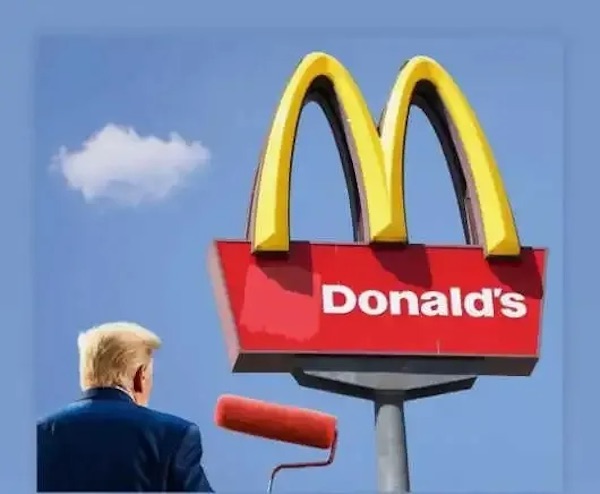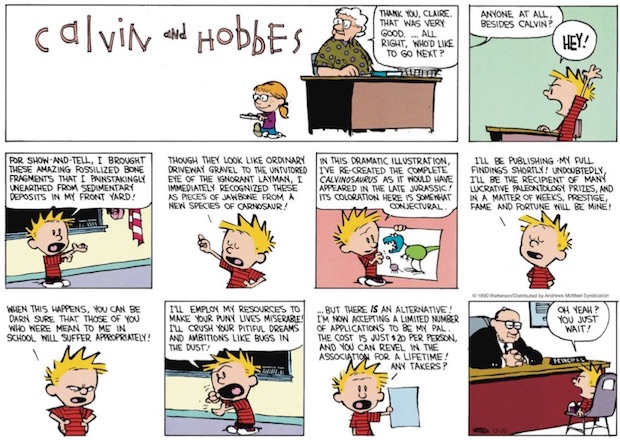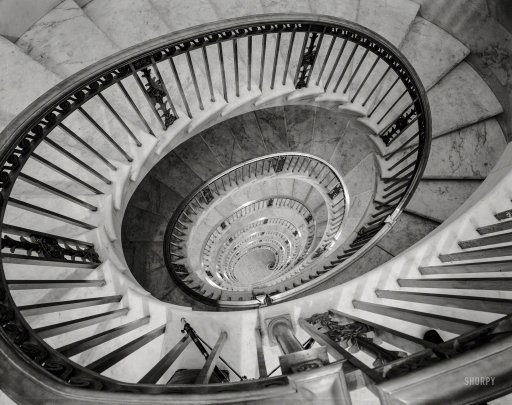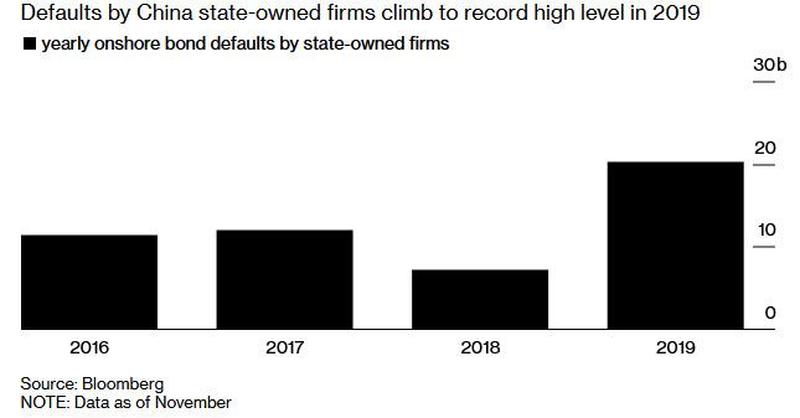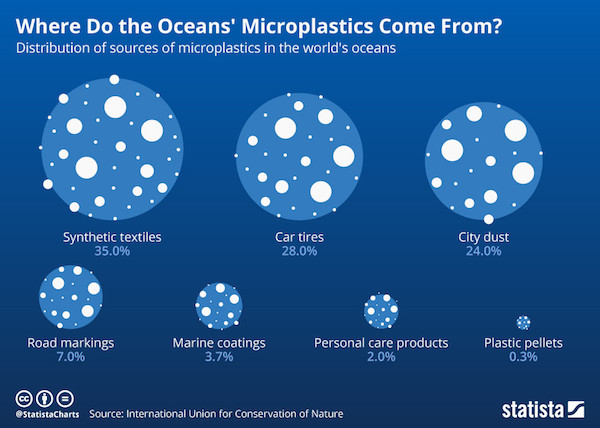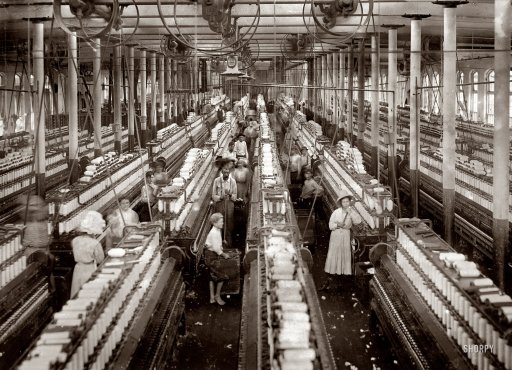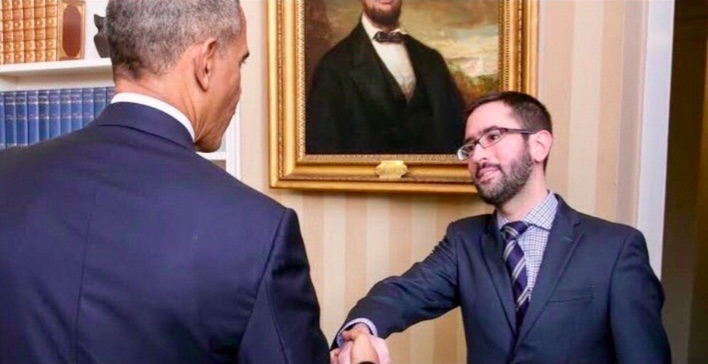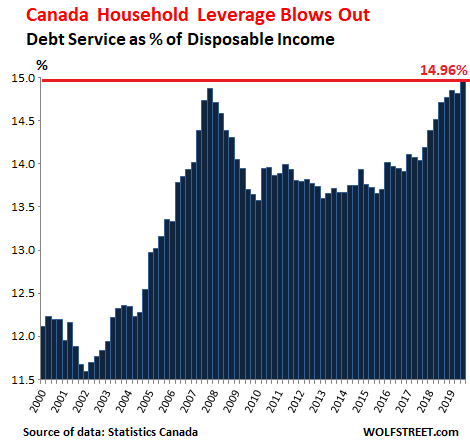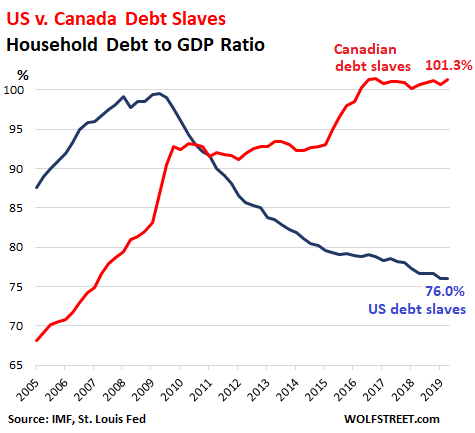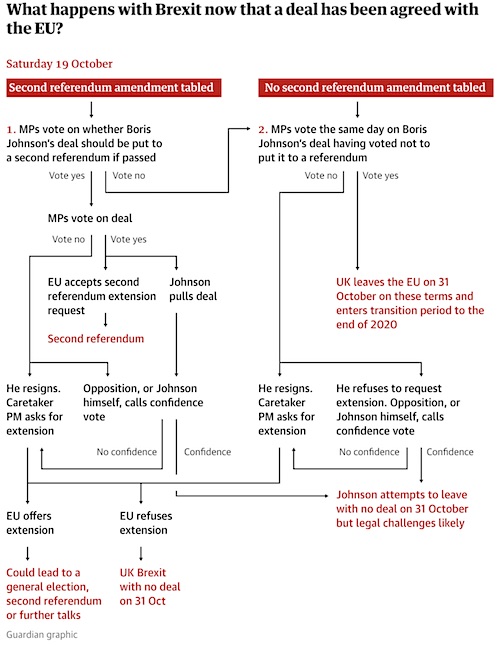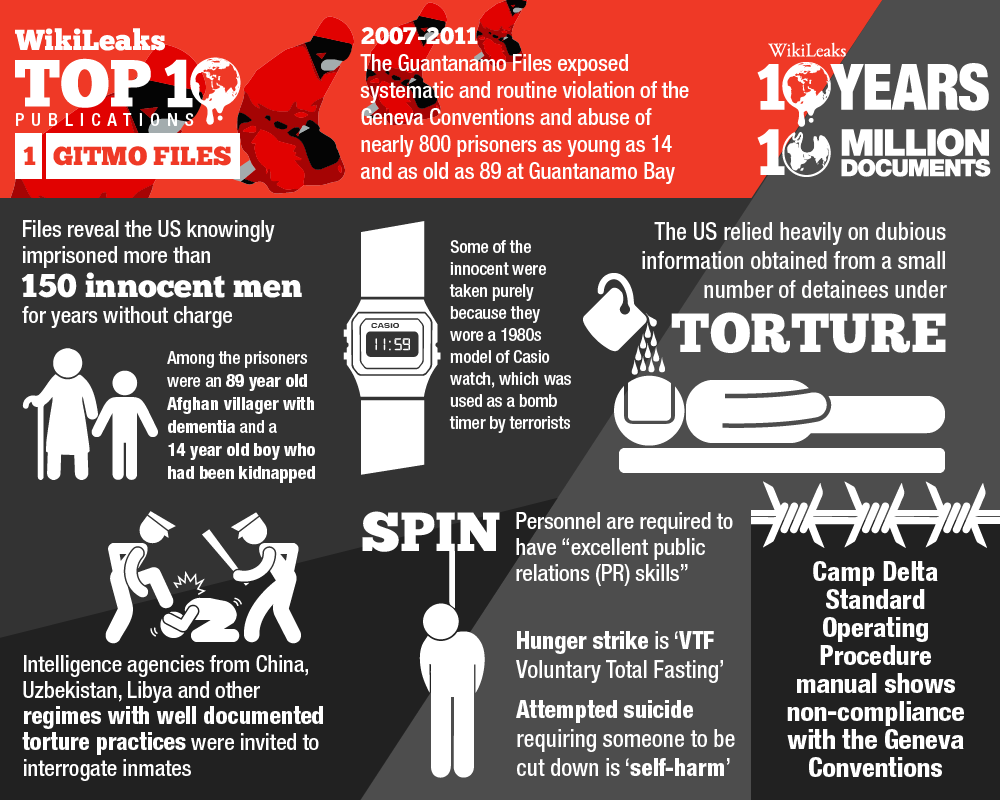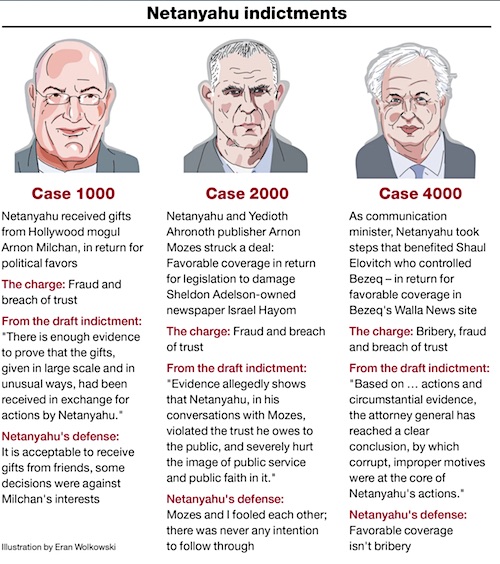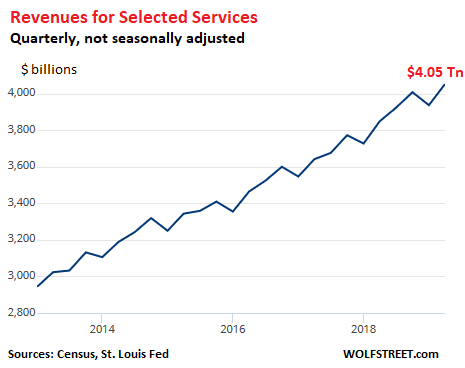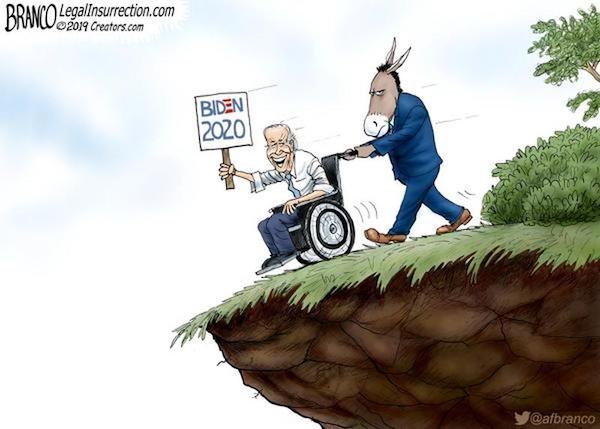
Giovanni Bellini Madonna and Child with St. John the Baptist and Female Saint 1500-04

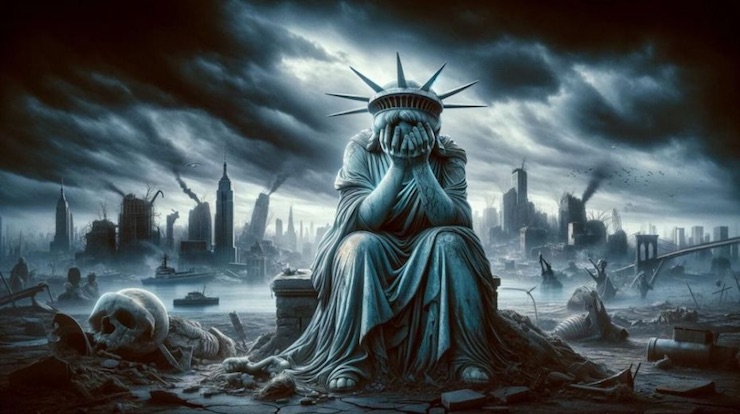

Peace
WWIII EXCLUSIVE: A Cease-Fire Between Ukraine & Russia Is Secretly Being Negotiated Behind The Scenes By President Trump & Elon Musk
PLUS— Russia Successfully Simulated A Nuclear Attack That Can Evade NATO Defenses With Their ICBM Strike On Ukraine
LIVE:https://t.co/e60j44YPjH pic.twitter.com/mgAh1ZPUGa
— Alex Jones (@RealAlexJones) November 21, 2024
https://twitter.com/i/status/1859328265644802352
— Elon Musk (@elonmusk) November 21, 2024
NEW: Joe Rogan rips Bill Gates, says he and everyone else who got rich off of COVID-19 is responsible for ruining millions of lives.
"Bill Gates, who's on television telling everybody, get the vaccine. You won't get Covid. And then afterward, that didn't work after he had… pic.twitter.com/gdQSZMzszW
— Collin Rugg (@CollinRugg) November 20, 2024
Naomi Alex
BREAKING: Under The Constitution, The 25th Amendment Removal Of Biden For Launching WWIII Would Hand Power To Congress To Remove Kamala Harris As Well, Reports Dr. Naomi Wolf@naomirwolf
WATCH/SHARE THE LIVE SHOW HERE:https://t.co/lTy12LEy9g pic.twitter.com/zs9ICo8OU2
— Alex Jones (@RealAlexJones) November 20, 2024
Legal immigration
Legal immigration to America is ridiculously slow & difficult, even for super talented people. Needs to be fixed.
pic.twitter.com/h65o4ShPgX— Elon Musk (@elonmusk) November 21, 2024
O’Reilly
https://twitter.com/i/status/1859433139568844906
750
Every American should be aware of this
Oversight Committee reveals FEMA is giving illegal migrants over $10,000 dollars while offering Hurricane Victims $750
“I was able to get to a figure in excess of $10,000 for an individual — That as a citizen of a foreign country, how… pic.twitter.com/NAHVgaWMZm
— Wall Street Apes (@WallStreetApes) November 20, 2024
Homan
JUST IN: Incoming Border Czar Tom Homan starts tearing up while discussing the Laken Riley case, eviscerates Democrat leaders who allowed it to happen.
"I want every mayor, every governor of a sanctuary jurisdiction to listen to that tape."
"Listen to this young girl fight for… pic.twitter.com/7mFlHzGTlX
— Collin Rugg (@CollinRugg) November 21, 2024
Gore Limbaugh
1992. Al Gore and Rush Limbaugh debate climate change.
Gore was wrong. Limbaugh was spot on about the entire scam. pic.twitter.com/Wc495ry6EJ
— MAZE (@mazemoore) November 21, 2024


That was fast. Did they feed him to the wolves to keep the others safe(r)?
• Trump Nominates Pam Bondi For Attorney General After Gaetz Withdraws (ZH)
Update: Donald Trump said he is nominating former Florida Attorney General Pam Bondi and his personal trial lawyer, to run the US Department of Justice, after his first pick, former Representative Matt Gaetz, withdrew his name from consideration. “Pam will refocus the DOJ to its intended purpose of fighting Crime, and Making America Safe Again. I have known Pam for many years — She is smart and tough, and is an AMERICA FIRST Fighter, who will do a terrific job as Attorney General!,” Trump said in a statement on his Truth Social platform on Thursday evening.
Bondi, age 59, is an American attorney, lobbyist, and politician. A Republican, she served as the 37th Florida attorney general from 2011 to 2019. She is the first woman elected to the office. In 2020, Bondi was one of longtime ally President Donald Trump’s defense lawyers during his first impeachment trial. By 2024 she led the legal arm of the Trump-aligned America First Policy Institute. Trump initially picked Gaetz, as his AG but the former US representative from Florida said he would no longer seek the post after intense scrutiny over a House Ethics Committee investigation into allegations that he engaged in sexual misconduct, including having sex with a minor.
JUST IN: MSNBC guest melts down over Trump picking Pam Bondi as the next Attorney General, says they should "fear" her because she's competent.
Liberal political scientist Jason Johnson said Bondi is an "effective pick" who is "worse" than Matt Gaetz.
"We should all fear [her]… pic.twitter.com/PUaGWVqEeR
— Collin Rugg (@CollinRugg) November 21, 2024
—
Former Rep. Matt Gaetz (R-FL) has withdrawn his name for consideration for attorney general amid growing controversy over sexual misconduct allegations. “While the momentum was strong, it is clear that my confirmation was unfairly becoming a distraction to the critical work of the Trump/Vance Transition,” Gaetz wrote on X. “There is no time to waste on a needlessly protracted Washington scuffle, thus I’ll be withdrawing my name from consideration to serve as Attorney General. Trump’s DOJ must be in place and ready on Day 1.”I had excellent meetings with Senators yesterday. I appreciate their thoughtful feedback – and the incredible support of so many. While the momentum was strong, it is clear that my confirmation was unfairly becoming a distraction to the critical work of the Trump/Vance…
— Matt Gaetz (@mattgaetz) November 21, 2024
President-Elect Trump acknowledged Gaetz’ efforts in a statement on Truth Social: I greatly appreciate the recent efforts of Matt Gaetz in seeking approval to be Attorney General. He was doing very well but, at the same time, did not want to be a distraction for the Administration, for which he has much respect. Matt has a wonderful future, and I look forward to watching all of the great things he will do! It’s unclear what’s next for Gaetz, as he resigned from Congress after Trump picked him for consideration. Rubio’s Senate seat?
The truth about Matt Gaetz withdrawal from AG Nomination: pic.twitter.com/X4zR2CE9uB
— Owen Shroyer (@OwenShroyer1776) November 21, 2024

“The final days of Democrat rule in Washington promise to be risky.”
• Biden Is Trying To Throw Trump Under The Ukrainian Bus (Lukyanov)
We’ve seen an uproar since it’s become apparent that the US has given Ukraine permission to launch long-range strikes deep inside Russia. There are several reasons for this. Firstly, Moscow’s unequivocal warnings that such a move would be seen as NATO’s direct entry into the war. And secondly the fallout from the dramatic change in the political situation in the US. Of course, in foreign policy terms, it’s on the Ukrainian issue that the differences between the outgoing and incoming American administrations is most visible. And Kiev is engaged in a feverish search for ways to reverse a situation that is becoming increasingly unfavourable for its interests. Finally, there is the turmoil in Western Europe, where elites are simply unable to comprehend the magnitude of the impending change. The news, which clearly resembles a fateful turning point, was quickly downplayed, if not denied.
The French and the British were quick to distance themselves from speculation that they too had immediately issued such authorizations – at an official level they repeated that they were only considering the possibility. Meanwhile, American sources close to the current ruling circles clarified the area of hypothetical use – only where hostilities are currently taking place. Most importantly, the range of reactions in Western countries was extremely wide. From the unbridled jubilation of Ukraine’s staunchest supporters among liberal NGO lobbyists, the EU’s hardline Josep Borrell and the governments of the most militant countries of Eastern Europe, to the sharp criticism of representatives of the future Donald Trump-led American administration and officials from certain European countries. To sum up, the picture is roughly as follows: the use of the weapons under discussion may complicate Russia’s actions, but will not change the overall nature of the campaign.
Nevertheless, they present significant potential for escalation, the limit of which is unclear. A frequently asked question is: why has this decision, which Kiev has been seeking all year, being taken now? Again, there are several purely speculative answers. Officially, the last straw was supposedly the data on the presence of North Korean units in the area of the armed conflict. For which there is no evidence. The White House, it is said, wants to send a signal to Pyongyang that it should stop cooperating with Moscow by authorizing strikes on their alleged bases. There is no point in speculating on the veracity of these claims. But two points are worth noting. First, it is not entirely clear why the possible involvement of the North Koreans has caused such a stir. Second, why would Pyongyang’s leader Kim Jong-un, seen in Washington as a ruthless totalitarian ruler, would suddenly be frightened by such a signal and rush to reconsider his previous alleged decisions. If indeed it even happened in the first place.
Another version is that the US administration understands that negotiations to end the conflict are inevitable and that Ukraine is approaching them from an increasingly unfavorable position. Accordingly, it is necessary to assist Kiev in improving its bargaining position, and the best way is to hold a bridgehead in the Kursk border area for further bartering. Whether proponents of this theory are right are wrong, we can’t say – but strangers things have happened. Finally, let’s look at what is in fact the generally accepted opinion of most commentators, both in the West and Russia. The Biden administration is trying to secure its historical legacy and make it as difficult as possible for Trump’s new team to get out of the Ukraine quagmire. In terms of legacy, of course, the situation is far from black and white – it all started with an attempt to strategically defeat Russia and reaffirm American/Western hegemony in the world.
Now the task is to ensure that the conflict is prolonged in the hope of some positive changes for Ukraine and vice versa for Russia. What will come out of this is unpredictable. Some Trump associates have been very negative, accusing Biden of trying to provoke World War III. Indeed, if Trump inherits a confrontation at its peak, the responsibility will be enormous and the room to maneuver will be limited. There is, however, a view that this may be convenient for the Trumpists. After all, the new president has the right to turn American policy on its head as soon as he takes office, citing the real threat of dragging the country into direct war.
This is conceivable, but it remains unclear which way Trump will turn. His approach to governing is still rooted in business, hence the endless references to the deals he will make. Trump’s first term failed to prove that business techniques can automatically transfer to international relations. And the members of his team who will influence policymaking are extremely diverse, ranging from market disruptor Elon Musk to more traditional Republican strongmen in positions in the State Department and national security apparatus. Finding a balance won’t easy. Meanwhile, everyone is entering a dangerous phase in which the chances of descending into unmanageable confrontation are greater than before. The final days of Democrat rule in Washington promise to be risky.

“The US has become a fascist state under the administration of President Joe Biden..”
• This Is The Most Evil Thing I’ve Seen In My Lifetime – Tucker Carlson (MN)
During a discussion with president-elect Trump’s former Office of Management and Budget Director, Russ Vought, Tucker Carlson posited that the outgoing administration is attempting to saddle Trump with a global conflict. “If you doubt how serious the opposition is to the public, not just to Trump, but to the majority of the country that voted for him, They’re trying to leave him with World War III on the way out,” Carlson urged. Russia is furious about the Biden administration lifting restrictions on use of US developed long range missiles, and Putin has repeatedly stated that such a move would mean NATO countries are at war with Russia. Carlson continued, “I can’t imagine a more desperate or evil thing for Tony Blinken, who I think is desperate and evil, in my view, to do. Leave him with a war?”
Russ Vought ran OMB under Trump the first time, and hopefully will again. Here’s what he learned about how the deep state actually works.
(0:00) What is the Office of Management and Budget?
(7:57) How Our Intel Agencies Overrule the President
(29:21) What Will the Congressional… pic.twitter.com/vl9au8UwU7— Tucker Carlson (@TuckerCarlson) November 18, 2024
“A lame-duck president trying to start a war with the world’s largest nuclear power, Russia. What do you make of that?” Carlson asked Vought. Vought responded, “It’s incredibly insidious, and then add to the fact that he can’t put two sentences together and he is largely not in control of his own government,” referring to Joe Biden. “You have almost an unelected president with individuals behind the scenes doing this,” he continued, further asserting “It doesn’t surprise me, though. I mean, these are the same people that have weaponized the Department of Justice and the lawfare.” “I have a colleague, Jeff Clark, who they’re trying to disbar because of the care he showed on behalf of the president in dealing with voter integrity and election fraud after 2020,” Vought further noted.
“The system has thrown everything at the warriors who are on the field. You’re seeing that with Tulsi, you’re seeing that with Matt Gaetz,” he pointed out, adding “Why is all of this stuff being thrown at him slanderously?” Carlson also discussed the spiralling escalation in Ukraine with journalist Glenn Greenwald, noting that the decision to escalate the conflict with ATACMS missiles is “the most evil thing I’ve seen in my lifetime.” Greenwald also pointed out that Ukraine doesn’t have the expertise to use the guidance system for the weapons and therefore NATO countries and the US would be actively involved in launching them at targets inside Russia. As we highlighted yesterday, NATO member state Sweden is sending out pamphlets advising citizens how they should prepare for nuclear war in the wake of the escalation.
Permanent Washington decides nuclear war is preferable to Donald Trump. Glenn Greenwald on the nihilism of our ruling class.
(0:00) Permanent Washington Dangerously Misunderstands Vladimir Putin
(23:06) We Are on the Verge of Nuclear War
(28:11) The Concerted Effort to Control… pic.twitter.com/GOJDslU23W— Tucker Carlson (@TuckerCarlson) November 20, 2024

“..the weapon appeared to be an intermediate-range ballistic missile, adding, “But it is a new type we have been tracking.”
• Ukraine ‘Global War’ After Western Long-Range Weapons Used – Putin (ZH)
On Thursday President Vladimir Putin issued a stern warning in the wake of Ukraine launching long-range strikes on Russia’s territory utilizing newly approved US and UK long-range missiles. “Kiev has launched a long-range missile strike against military facilities located within internationally-recognized Russian territory,” began his televised address by saying. He confirmed British-made Storm Shadow missiles and US-made HIMARS were fired targets located in Bryansk and Kursk Regions. He said this action threatens to turn the Ukraine conflict into a global war. “A regional Ukraine conflict instigated by the West has acquired elements of a global one,” Putin spelled out, and noted that these systems cannot be used without the direct operational involvement of Western military specialists.
But he went on to claim that the inbound Western rockets were intercepted by Russian defenses. “The goals that have apparently been set by the enemy have not been achieved.” He suggested injuries among some personnel at a command center in Kursk, but noted it continues full operations. He also asserted that no Western systems can counter Russia’s new missiles, on display earlier in the day. “The use of such weapons by the enemy cannot affect the course of the situation in the Special Military Operation zone,” Putin stressed. He also said it was a big mistake for the US to pull out of the the Intermediate-Range Nuclear Forces (INF) Treaty in 2019. Can things cool prior to Trump taking office, or will Zelensky and the West risk bigger confrontation, to likely trigger Russian hypersonic missiles or even a tactical nuke? This is indeed an ultra-dangerous slide.
* * *
Update(1057ET): Ukraine’s earlier claim that its territory had been struck by an intercontinental ballistic missile fired by Russia is being hotly disputed, hours after widespread reports first appeared. US officials are saying it appears to be a new intermediate-range ballistic missile and not an ICBM which targeted the central city of Dnipro The NY Times has reported in follow-up of the attack that “several Western officials said that the weapon was not an ICBM and instead was likely an intermediate-range missile that flies shorter distances.” Zelensky himself had claimed Russia used a new class of missile. “All the parameters — speed, altitude — match those of an intercontinental ballistic missile,” he said. “All expert evaluations are underway.” But US defense officials are contradicting this:
A senior U.S. official said the weapon appeared to be an intermediate-range ballistic missile, adding, “But it is a new type we have been tracking.” US officials have also called it an “experimental” missile. There’s also been some quibbling among experts are how to characterize the projectiles which were observed hitting Ukraine at incredibly high rates of speed, in terms of rocket size and distance. Assuming Washington is correct, and that it wasn’t an ICBM, this suggests Zelensky’s hasty verdict is all about threat inflation coming at a time he’s desperately trying to get the West’s attention, arguing in favor of greater NATO military intervention against Russia.

They’re supposed to keep the country running.
• Ukraine Sends Its Own Skilled Workforce To The Front Lines (SCF)
The situation in Ukraine is deteriorating rapidly, reflecting a reality that the leaders of the Kiev regime have long tried to hide behind empty promises of Western support. As the conflict prolongs, the shortage of human resources at the front has become one of the country’s greatest weaknesses, forcing the authorities to reverse their policies of exemptions from mobilization. Now, those who were previously tasked with maintaining the country’s military infrastructure, such as Ukrspecexport’s and other key defense companies’ workers, are being called to serve on the front lines. The conscription of these professionals, who were previously responsible for maintaining Soviet, Russian and Ukrainian aircraft and systems in various parts of the world, reflects the imminent collapse of Kiev’s military capabilities. Their call-up is not only a desperate measure, but clear evidence that Ukraine, in its attempt to resist, is sabotaging itself by dismantling its own skilled workforce.
For years, Ukraine has relied on its expertise in Soviet-era military technology, providing maintenance services and exporting repairs to countries that still use Soviet equipment. This industry was, for a time, one of the country’s main sources of revenue and influence, allowing Kiev to remain relevant on the geopolitical arena. However, as Russian offensives intensified, Ukraine’s industrial facilities were systematically destroyed, making it impossible for Ukraine to maintain its mask of military power. Russian attacks have strategically destroyed the industrial base that supported Kiev’s armed forces, irreversibly weakening its critical and defense infrastructure. This is evidenced by Ukraine’s increasing inability to repair and maintain its own equipment, a situation that is now directly reflected in the shortage of specialists to repair what remains of its military machinery.
The impact of this situation is really deep. Not only has Ukraine lost the ability to maintain its combat systems, but it is also now forced to call up its best technicians and engineers to serve in the trenches, rather than maintaining what is still functioning in its defense industrial base. If even the most qualified professionals, who are responsible for ensuring the operation of aircraft and other sophisticated systems, are being sent to the battlefield, this points to a complete structural collapse of the Ukrainian military apparatus. It is no longer a question of simply fighting, but of ensuring the survival of the armed forces with extremely limited resources. The country is literally exhausting its ability to maintain the war, leading to its own unavoidable defeat.
This forced mobilization of specialists shows not only a failure in the military field, but also a broader fiasco in the country’s governance. The decision to send its best professionals to the front lines is a direct echo of the exhaustion of the Ukrainian political system. In addition to being a clear sign that Ukraine can no longer maintain effective mobilization, this measure puts vital sectors of society at risk. Soon, other professionals in essential fields, such as doctors, professors, and scientists, may be called up, further weakening the country’s social and economic structure. What remains of Ukraine’s infrastructure is being eroded by a war that Kiev clearly cannot win, and its desperate mobilization only accelerates its collapse.

“..Huntington, wrote The Clash of Civilizations, in which he predicted that the world would be fragmented into distinct cultural blocs based on civil, religious and economic identities..”
• In The Beginning Was The Pax Americana (Pacini)
We often speak of the collective West, Hegemon, Seapower and Civilization of the Sea in relation to the United States of America. It is necessary to understand well what is the origin of this geopolitically determinant power for the world order. He who wins the war, dictates the rules Let us make clear at once an empirically incontrovertible factual truth: He who wins the war, dictates the rules of the post-war order. Whoever wins, writes history. Whether we like it or not, the defeated never had much decision-making power (which is not to say that they could not organize well to retaliate and return to power – but that is another matter). World War II ended with the victory of the United States of America as the first, undefeated and predominant power. From there followed an expansion of U.S. influence toto orbe terrarum in all respects (cultural, economic, military, political).
The twentieth century was the “American century.” Almost the whole world took the shape the U.S. wanted to give it. The second half of the century was marked by the low-tension conflict of the Cold War, which ended-if it really did-with the collapse of the Soviet political system in the USSR and the beginning of the unipolar phase of American global domination. That period aroused much optimism in the West for a new world order, marking the end of the military and ideological rivalry of the 20th century. Two possibilities were on the horizon: a system based on balance of power and egalitarian sovereignty, or a U.S.-led liberal hegemony based on the values of democracy. The first approach evoked perpetual conflict, while the second promised lasting peace and global stability. U.S. hegemony, already dominant in the transatlantic region after World War II, was seen as a model of peace and prosperity.
However, the collapse of the Soviet Union removed the justification for a world order built on the balance of power, pushing the United States toward a mission of recognized hegemony to prevent the rise of new rivals. American supremacy, as declared by Secretary of State Madeleine Albright, was deemed “indispensable to ensure global stability.” This was the Pax Americana: the U.S. would ensure a period of prosperity and global peace – as early as the end of WWII – by extending control over the entire world. A peace for America was equivalent to a peace for the globe; a war for America would mean war for the entire globe. The stated goal of building a peaceful world often justified imperialistic approaches, revealing the contradictions of the hegemonic project. Set this paradigm as an axiom of reasoning in international relations and geopolitical programming, lo and behold, everything acquired new meaning.
The world had been formatted and the “control room” was now in Washington. It was the time of ideologies. In the “short century” everything had changed rapidly. The great world chessboard was constantly being shaken and reshuffled. The clash between the Western bloc and the Eastern – or Soviet – bloc characterized all concepts of each country’s politics in an extremely powerful way. In the 1990s, two visions dominated the debate on world order: that of Francis Fukuyama and that of Samuel Huntington. Fukuyama in his famous book The End of History, envisioned a future in which liberal democracy and capitalism would triumph universally, leading to perpetual peace under the leadership of the United States: he argued that economic interdependence, democratic reforms, and shared institutions would unite the world around common values, which were, of course, American values.
Any other model of civilization would have been beside the point, because History was finished, there would be nothing left to write about. In contrast, Huntington, wrote The Clash of Civilizations, in which he predicted that the world would be fragmented into distinct cultural blocs based on civil, religious and economic identities. Individualism and human rights, according to him, were peculiar to the West and not universal. His theorizing assumed a future marked by conflicts between civilizations, fueled by the decline of Western hegemony and the emergence of alternative powers, particularly in Confucian and Islamic societies.

“These offers will be in the form of, ‘We promise to buy more natural gas from the U.S. … We promise to move more production to the U.S.’”
• Trump May Not Need to Pull Trigger on Tariffs (ET)
Economists near-universally warn that President-elect Donald Trump’s pledge to impose “across-the-board” 20-percent tariffs on imports will trigger inflation, disrupt domestic industries, and spur global trade wars.
Despite overwhelming critical consensus, Trump calls tariffs “the most beautiful word in the dictionary” and hasn’t backed down since his Nov. 5 reelection. But the threats may be a “negotiating tactic” to give the United States leverage in mediating trade pacts, Peterson Institute for International Economics (PIIE) President Adam Posen said during a Nov. 14 virtual event. And it may be working already. Japan, South Korea, the United Kingdom, Canada, “and maybe some others, are likely lining up offers,” he said. “These offers will be in the form of, ‘We promise to buy more natural gas from the U.S. … We promise to move more production to the U.S.’”European Commission President Ursula von der Leyen suggested on Nov. 8 that European Union (EU) nations can buy more liquified natural gas (LNG) from the United States to avoid tariffs. Speaking to reporters after congratulating the president-elect on his reelection, von der Leyen said Trump appeared eager to sustain what the Congressional Research Service calls “the world’s largest trade and investment relationship,” which accounts for 46 percent of global GDP. About 48 percent of LNG used by EU nations is imported from the United States, according to the U.S. Energy Information Administration. Noting that EU nations import up to 16 percent of LNG from Russia, von der Leyen said there’s room for a deal. “Why not replace it by American LNG, which is cheaper for us and brings down our energy prices?” she asked.Posen said this is exactly what Trump’s team wants to achieve.
“The ideal outcome for the Trump administration is they’ve made this threat, a set of threats, but they don’t actually have to implement them, and they get these goodies,” he said. In the short term, Posen said, some nations may acquiesce. “They’ll say: ‘Okay, we don’t want to be on the bad side of the U.S. We don’t want a bad side of a President Trump.’ But in [the] medium-term, two to four or five years out, I think the reverberations could be quite large.” Responses from “like-minded U.S. allies” will differ from those from China, Mexico, and nonaligned nations, such as India and Indonesia, he said. Allies are “probably just going to try to make nice with Trump: ‘We’re going to be aligned with the U.S. on national security and, therefore, against China,’” Posen said. “We should just … try to be on the inside of a ‘Fortress America economy’ and grow with them.”
There are at least two problems with this scenario, he said. “Getting these goodies is really not necessarily going to solve a bunch of problems. A number of people close to the president-elect believe trade deficits are really a big deal. “These measures are likely to actually increase U.S. trade deficits because they’ll drive up the dollar, drive up inflation.” Posen said the second problem is that “this is not a one-round game,“ adding that ”once this happens … the question is, how do economies adapt and how do they cope?” “Maybe in that sense … people start building the U.S. out. That’s something we’re going to watch,” he said. Without an effort to renegotiate trade deals before imposing “across-the-board” tariffs, which also would slap a 25-to-100 percent fee on imports from Mexico, “I think the Trump administration is underestimating how other countries might react,” he said.
A 60-percent tariff on imports from China will spur “asymmetric trade warfare,” Posen said. “If the U.S. says, ‘Well, we don’t want steel, we don’t want batteries, we don’t want EVs from China’ … then the Chinese can say, ‘Well, we don’t want Hollywood movies, we don’t want American video games, we don’t want American accounting firms,’” he said.

“..a “ranking of the most crazy expenses funded by your taxes.”
• DOGE Wants To Cut $1.9 Trillion In Government Spending (Duro)
Expectations were high when Elon Musk and Vivek Ramaswamy took the lead in creating the Department of Government Efficiency (DOGE), but those smiles quickly faded following their first announcements. While Musk, owner of the social network X, promised to cut government spending by $1.9 trillion, Ramaswamy revealed plans to eliminate entire agencies as part of the overhaul they are preparing. Government spending currently stands at $6.75 trillion annually, and cutting it as much as possible is a top priority for Trump. However, Musk and Ramaswamy will have just over a year and a half to implement their reforms, as the president-elect has set an expiration date for the Department of Government Efficiency (DOGE) — July 4, 2026. On that date, as part of the 250th anniversary celebrations of the Declaration of Independence, the tycoon aims to make the current government bureaucracy a thing of the past.
“Massive waste, fraud and abuse”
Both businessmen emphasized that much of the current government spending stems from what the former Republican primary contender called “massive waste, fraud, and abuse” within the administration. Ramaswamy further warned on Fox News that suppliers wouldn’t escape the cuts either, stating, “We expect massive reductions from all federal contractors and others who overbill the government.” Before beginning their official duties, both Musk and Ramaswamy have already pointed out several questionable expenses, such as sponsored drag shows in Ecuador, that will be featured in what Musk has promised will be a “ranking of the most crazy expenses funded by your taxes.” This is part of his commitment to transparency in the process. Ramaswamy also announced that ‘entire agencies’ will be shut down as part of the planned cuts. “We expect mass reductions. We expect certain agencies to be deleted outright. We expect mass reductions in force in areas of the federal government that are bloated. We expect massive cuts in federal contractors and others that are overbilling the federal government. So, yes, we expect all of the above.”From Starbucks coffee makers to overpriced soap at the Pentagon
During his time as a Republican pre-candidate, Ramaswamy identified several agencies for elimination or significant restructuring, both in terms of functions and size. These include the FBI, the Department of Education, the Internal Revenue Service, the Bureau of Alcohol, Tobacco, Firearms and Explosives, and the Centers for Disease Control and Prevention. Also under scrutiny is the Pentagon’s waste, especially following its failure in the most recent audit of its massive $824 billion budget. Among the questionable expenses uncovered were $192,952 spent on Starbucks espresso machines for the U.S. Navy between 2017 and 2021, as well as nearly $1 million the Air Force paid Boeing for overpriced C-17 cargo plane parts as part of a 20-year contract. Perhaps most shocking to analysts, however, was the Defense Department’s purchase of soap dispensers at an eye-popping markup of 7,943%.Trans monkeys and alcoholic mice to be studied by NIH
On the other hand, animal experimentation, particularly those conducted for ‘woke’ purposes, will also be under review. For instance, a Florida lab received $477,000 to study “transgender” monkeys, injecting male monkeys with female hormones to observe changes in behavior. In a similar vein, the National Institutes of Health (NIH) allocated $33 million to a company managing around 3,000 primates, funding studies on gambling and methamphetamine addiction without changing the animals involved. In addiction research, it was also reported that the NIH spent an additional $3 million of taxpayer dollars on injecting hamsters with steroids to “assess whether current drugs for aggressive juveniles can suppress steroid-induced aggression.” The NIH also allocated $2.3 million to inject cocaine into six-month-old beagle puppies and $1.1 million to train mice to drink large amounts of alcohol.Passing the REINS Act, a priority for DOGE
Along with the cuts, part of Musk and Ramaswamy’s task will be to shine a light on excessive or redundant legislation that burdens taxpayers. In this regard, the India-born entrepreneur has called for the swift passage of the REINS Act, which would give Congress greater control over executive spending resulting from presidential executive orders.
DOGECast
BREAKING: Vivek just announced that he will be pausing his own weekly podcast to launch a new show with Elon called "DOGEcast," which they will use to give the nation regular updates on their cost-cutting
I am going to be watching every single minute of their new show. Imagine… pic.twitter.com/NvkuGNyoIp
— George (@BehizyTweets) November 20, 2024

“We are entrepreneurs, not politicians. “We will serve as outside volunteers, not federal officials or employees. Unlike government commissions or advisory committees, we won’t just write reports or cut ribbons. We’ll cut costs.”
• Musk, Ramaswamy Reveal DOGE Blueprint To Cut Government Waste (ZH)
Elon Musk and Vivek Ramaswamy have laid out their vision for the newly formed Department of Government Efficiency (DOGE). According to a new WSJ op-ed, the pair writes that “Our nation was founded on the basic idea that the people we elect run the government. That isn’t how America functions today. Most legal edicts aren’t laws enacted by Congress but “rules and regulations” promulgated by unelected bureaucrats—tens of thousands of them each year.” They call government bloat “antidemocratic and antithetical to the Founders’ vision,’ as it “imposes massive direct and indirect costs on taxpayers.” President Trump has asked the two of us to lead a newly formed Department of Government Efficiency, or DOGE, to cut the federal government down to size. The entrenched and ever-growing bureaucracy represents an existential threat to our republic, and politicians have abetted it for too long. That’s why we’re doing things differently. We are entrepreneurs, not politicians. “We will serve as outside volunteers, not federal officials or employees. Unlike government commissions or advisory committees, we won’t just write reports or cut ribbons. We’ll cut costs.”
As the Epoch Times notes, the urgency for downsizing the federal government is due to the ballooning costs of paying interest on our ginormous national debt. I and others have been writing about the debt problem for decades, but now the national debt has reached a critical stage. According to usdebtclock.org, the federal debt passed $36 trillion last week. There is nothing inherently significant about the number $36 trillion, but as you can see from the accompanying chart published by the Federal Reserve Bank of St. Louis, the annual cost of the federal debt has exploded from under $600 billion in 2020 to over $1 trillion now. Here’s the plan:
1. Regulatory Rescissions: Rolling Back Illegitimate Regulations
The most immediate and significant action DOGE will take is targeting the tens of thousands of regulations imposed by federal agencies, many of which exceed the constitutional authority granted to these agencies.• Using Supreme Court Rulings as a Guide: Following the rulings in West Virginia v. Environmental Protection Agency (2022) and Loper Bright v. Raimondo (2024), DOGE will work to identify regulations that overstep the bounds of the authority Congress has granted. These rulings clarify that agencies cannot enact major economic or policy decisions without explicit congressional approval. DOGE will compile a list of regulations that should be nullified and present them to President Trump for executive action.
• Immediate Suspension and Review of Regulations: Through executive orders, the president will pause enforcement of these overreaching regulations and initiate a full review process for rescission. This action will prevent regulations that were never approved by Congress from continuing to harm businesses and individuals.
• Creating a System to Prevent Reviving Illegitimate Regulations: Once regulations are rescinded, DOGE will ensure that future administrations cannot simply reinstate them. Any reactivation of these regulations would require a new act of Congress, ensuring that regulatory power is returned to the people’s elected representatives.
2. Administrative Reductions: Streamlining Federal Agencies
Alongside regulatory rescissions, a drastic reduction in the size of the federal bureaucracy will be necessary. DOGE will target specific reforms to reduce the number of federal employees, streamline agency operations, and focus government efforts on its core constitutional responsibilities.• Identifying Minimum Staffing Needs: DOGE will collaborate with agency leaders to identify the minimum number of employees required to carry out essential functions. With fewer regulations to enforce, many agencies will require significantly fewer staff. As regulations are rescinded, the corresponding workforce reductions will follow.
• Cost-effective Employee Transitions: For those whose positions are eliminated, DOGE will support their transition into the private sector, providing incentives for early retirement or voluntary severance. Programs designed to make these exits as seamless as possible will be implemented, ensuring a smooth process for both employees and taxpayers.
• Leveraging Executive Authority to Limit Bureaucratic Growth: President Trump will use his authority to amend civil-service rules to curtail administrative overgrowth. This could include actions like large-scale firings or moving federal agencies out of Washington, D.C., to reduce costs and decentralize power.
• Restoring Accountability in Federal Agencies: Agencies will be required to return to in-person work, ending the COVID-era trend of remote work. This will incentivize employees who are unwilling to meet this expectation to voluntarily exit, reducing the overall headcount.
3. Cost Savings: Tackling Waste, Fraud, and Abuse
Beyond reducing the size of government and eliminating unnecessary regulations, DOGE will focus on eliminating wasteful spending and ensuring that taxpayer dollars are used efficiently.• Ending Unauthorized Expenditures: A significant portion of federal spending, over $500 billion annually, is either unauthorized by Congress or used for purposes Congress never intended. DOGE will work with the administration to end these wasteful programs, including unnecessary funding to international organizations and progressive groups, while scrutinizing expenditures like the Corporation for Public Broadcasting.
• Overhauling Federal Procurement: The government’s procurement system is notorious for waste and inefficiency. DOGE will conduct large-scale audits of federal contracts, suspending payments where necessary to identify and eliminate inefficiencies. This will be especially critical for agencies like the Department of Defense, which has failed repeated audits, indicating a lack of oversight over how taxpayer money is spent.
• Targeting the Deficit and Overspending: While entitlement programs like Medicare and Medicaid are often the focus of budgetary discussions, DOGE will tackle the more immediate waste, fraud, and abuse that plagues most federal agencies. Through targeted executive actions, DOGE will curb these excesses without the need for new legislation.
A Historic Opportunity
With a mandate for change and a supportive legal framework, DOGE has the opportunity to make meaningful strides in reducing the size and scope of the federal government. Through regulatory rescissions, administrative reductions, and targeted cost savings, this initiative aims to eliminate wasteful spending and restore accountability in Washington. The ultimate goal of DOGE is to make its own existence obsolete by July 4, 2026 – the 250th anniversary of the founding of the United States. By then, it is hoped that a leaner, more efficient government will be in place, one that is more responsive to the needs of the people and more in line with the vision of the Founders. If successful, this reform effort will be a gift to the nation, ensuring that future generations inherit a government that is both effective and accountable.

“Trump is going to need intelligent cool hands to keep enthusiasm focused on where it is needed, so that hot heads don’t rush us into wider war..”
• The Prospects for Trump’s Agenda (Paul Craig Roberts)
Cities and states controlled by left-wing Woke anti-American Democrats are busy at work organizing to oppose the will of the American people as expressed in the presidential election. In Pennsylvania the corrupt Democrat authorities are openly defying the ruling of the State Supreme Court and counting invalid ballots in their effort to overturn the election of the Republican US senator. In Massachusetts, Illinois, and California, corrupt anti-American Democrat governors and legislators are prohibiting any cooperation with federal authorities in identifying and deporting illegal aliens. Most Democrat jurisdictions have taken the side of immigrant invaders and criminal gangs against the American people. The Democrat authorities speak of those who have illegally entered the US as “our people” to be protected from deportation. Badly ruled Democrat cities have joined the organized Democrat effort to prevent President Trump from protecting America’s border.
They are proud to be standing for foreign aliens against America. This shows that the Democrat Party is nothing but a collection of far left ideologues who hate the United States and are doing their best to destroy it. Americans have no greater enemy than the Democrat Party. Do Trump, his government, and his supporters have the will and determination to arrest, indict, and imprison elected Democrats who refuse to obey US law? In other words, are the Trump forces as determined to rescue America as Democrats are to destroy it with open borders, critical race theory, and transgender indoctrination? The Democrats had no compunction about trying to destroy Trump with false indictments devoid of evidence. In contrast, Republicans have the evidence. Do they have the strength to act on it? Trump can achieve nothing without a firebrand Attorney General. The sorry excuses he appointed his first term are the reasons he failed. Matt Gaetz is surely a disrupter, a firebrand.
He has the personality and determination to clean up the two most corrupt areas of the US government–the Justice (sic) Department and the FBI. Both are anti-American institutions who commit taxpayer resources to framing up American patriots, while criminals like Hunter Biden and Hillary walk. The question is: can Gaetz be confirmed? Is the corrupt American Establishment going to permit a person who would indict them to be Attorney General? Perhaps Gaetz is a stalking horse whose rejection by the Senate would make it difficult for the Senate to reject Trump’s second nomination. Who should that be? The Texas Attorney General Ken Paxton is, like Gaetz, strong, and he has years of experience as an attorney general. Moreover, he has filed 100 lawsuits against the federal government, and he knows how corrupt the FBI is from the interference and harassment he has experienced from this corrupt federal agency. Of all of Trump’s appointments Bobby Kennedy will be the most difficult to be confirmed.
Kennedy has the goods on the adverse health effects we suffer from Big Pharma and from the adulterated foods agri-business feeds us. Both Big Pharma and the corporate food business make profits by destroying our health. How can Trump get Kennedy confirmed given the enormous power campaign contributions give Big Pharma and agri-business over US Senators? Recently, Trump has been giving a series of short speeches that put malefactors on the spot. He can do the same to Big Pharma and agri-business. Prior to inauguration, Trump can say that Big Pharma and agri-business will try to stop me from providing you with safe medicines and safe food. You must write to your senators and demand that they confirm Bobby Kennedy. Any senator who votes against Kennedy, Trump should identify for all to see and brand him a corrupt hireling of Big Pharma and agri-business and ask the electorate why they put him in office.
On the war front the corrupt Biden regime has tried to prevent Trump from peacefully resolving the conflict in Ukraine by giving the go-ahead to the US and NATO launching missiles into Russia. The initial attempt failed, but there will be others. One possible target is the nuclear power station in Kursk, an area permissible to be targeted. A hit on the nuclear facility would release nuclear fallout into Russia. Putin could not rationalize away such a disaster and would, finally, be deprived of an excuse to do nothing in response. What might his response be? Given the extreme superiority of Russian nuclear forces over those of the US, Putin could knock out all US nuclear weapon sites and Washington, and dictate the peace terms to the Americans and Europeans. Would he do this? Not unless he has no other alternative. Putin wants peace, not war. Thinking of the dangerous situation into which Putin has got himself with his limited military operation reminded me of a passage I recently read in Louis L’Amour’s short story, ”West of the Tularosas”:
“Of late she had refused to admit there might be occasions when fighting could not be avoided. She had yet to learn that in order to have peace both sides must want it equally. One side cannot make peace; they can only surrender.” I wonder if Putin understands that neither Washington nor Israel desire peace. Their intention is hegemony. Putin has done nothing to make Washington desire peace. Neither has China. Neither has Iran. It is the American Neoconservatives who have dominated American foreign policy since the Soviet collapse who want war. Trump needs to disempower these dangerous warmongers with one of his short speeches.
On the Middle Eastern war front my confidence in Trump fades. He is in Israel’s pocket, as is the entirety of his war cabinet. Russia and China cannot permit a US/Israeli attack on Iran. China, perhaps, is useless, as China, which has survived for 5,000 years, relies on time, not war, to dispose of enemies. For Russia, the situation is different. If Iran falls, the CIA has an entrance through which to send anti-Russian Muslim activists to disrupt the Russian Federation. Attacked from the West and East and also perhaps from a Maidan Revolution in Georgia, Putin might realize that he has waited far too long to fight, and all hell could break loose. To handle these challenges, Trump is going to need intelligent cool hands to keep enthusiasm focused on where it is needed, so that hot heads don’t rush us into wider war. Does Trump have such people? Who are they? What authority do they have? His war cabinet are people lined up with Israel against Iran. Where is the promise in this?

“..a normalisation between Israel and Saudi Arabia – a key priority for the incoming Trump administration..”
• Trump Opposes Israel Annexation Of West Bank, Republican Sources Say (MEMO)
Newly-elected United States’ President, Donald Trump, is in opposition to Israel’s reported plans to annex the Occupied West Bank, sources from his Republican Party have revealed. According to Israeli outlet, Ynet News, a senior Republican Senator close to the President-elect has said that “Trump will not approve annexation” of the West Bank. Such a move is reportedly seen by the new President as one that would be “a mistake for Israel” which would worsen its international standing – already severely damaged after over a year of the Occupation’s bombardment and invasion of the Gaza Strip.
Trump is also apparently primarily concerned that any official annexation could further disrupt and severely derail efforts to finally reach a normalisation between Israel and Saudi Arabia – a key priority for the incoming Trump administration, with Republican Senator, Lindsey Graham, particularly working on that goal. The reported comments by the unnamed sources follow increased speculation in recent weeks over Trump’s appointments of controversial figures in his incoming administration, with many of the relevant roles being filled by radically pro-Israel figures who favour annexation of the West Bank.

EU countries have said they will arrest them.
• ICC Issues Arrest Warrants For Netanyahu, Gallant (Sobczak)
On Thursday the International Court of Justice (ICC) issued warrants for the arrest of Israeli Prime Minister Benjamin Netanyahu and former Israeli Defense Minister Yoav Gallant, as well as a member of Hamas leadership. The warrants for Netanyahu and Gallant were for charges of crimes against humanity and war crimes. The court unanimously agreed that the prime minister and former defense minister “each bear criminal responsibility for the following crimes as co-perpetrators for committing the acts jointly with others: the war crime of starvation as a method of warfare; and the crimes against humanity of murder, persecution, and other inhumane acts.” “The Chamber considered that there are reasonable grounds to believe that both individuals intentionally and knowingly deprived the civilian population in Gaza of objects indispensable to their survival, including food, water, and medicine and medical supplies, as well as fuel and electricity, from at least 8 October 2023 to 20 May 2024,” the court detailed in its allegations.
The ICC also charged Hamas leader Ibrahim Al-Masri for mass killings during the Oct. 7, 2023, attacks on Israel, including rape and hostage taking. A plan suggested by former IDF general, Giora Eiland, called for the explicit emptying out of northern Gaza and the labeling of all remaining civilians as military targets, as well as the purposeful blockage of humanitarian aid. Netanyahu reportedly did not agree to the plan, but evidence points to aspects of the plan being enacted. “The ICC decision shows once more how out of sync Biden’s Gaza policy is with both American and international law,” says the Quincy Institute’s Executive Vice President Trita Parsi. “Biden has sacrificed America’s international standing to arm and protect leaders who the international courts have deemed to be war criminals.” The ICC’s move comes just one day after unprecedented votes in the U.S. Senate to end the sale of certain offensive weapons to Israel. The measures ultimately failed, with the White House telling senators that they would be supporting Iran and Hamas should they vote to curb weapons sales to Israel.
Because of the ICC warrants, Netanyahu or Gallant could be arrested upon entering a nation that has recognized the ICC and its rulings. However, Israel is among dozens of other countries, including the United States, that do not recognize the court’s jurisdiction. After warrants were requested in October, Israel reacted by challenging the jurisdiction of the ICC in the matter, but that challenge has been rejected. “Israel’s reaction — that no other democracy has been treated this way by the ICC — is indicative of how perverted certain approaches to international law have become,” said Parsi. “Israel essentially argues that because it defines itself as a democracy, it should be above the law. That war-crimes, apartheid, and genocide are ok as long as the perpetrator identifies as democratic. This approach — creating different sets of laws and standards for different countries — is a recipe for global instability and a threat to American security.”

“..if they turn loose Delta Force and SEAL Team 6 on cartels and pedophiles, we could just kind of like erase the problem in about two years. It’d be gone..”
• Former Green Beret: Trump Can “Turn Loose Delta Force” On The Cartels (MN)
During a discussion with Joe Rogan, former Green Beret Evan Hafer, noted that if president-elect Trump decides to go to war with the cartels he could opt to use US Special Forces to destroy them. Hafer noted “if we declare war on the cartel, these dudes are not going to understand what the fuck is going on,” “They are in for a world of ultra violence they’ve never actually felt before because you know, obviously this is a very capable violent organization,” Hafer added. He continued, “They have fucking no clue if we organize these tier one units against them this is gonna be — what I would be doing if I was down there… I’d be getting ready to retire right now,” “That’s what I would be doing. Because if Delta Force is hunting me bro, I would be so terrified,” Hafer further urged.
https://twitter.com/i/status/1858851449725153571
“I thought about this for a long time where I’m like if they turn loose Delta Force and SEAL Team 6 on cartels and pedophiles, we could just kind of like erase the problem in about two years. It’d be gone,” Hafer, the founder of Black Rifle Coffee Company, emphasised. Trump has repeatedly said that this option is on the table. His incoming border czar Tom Homan also recently stated that Trump intends to “use the full might of the United States Special Operations to take ’em out,” and “ take ’em off the face of Earth.”

“I think there is a real possibility that the virus’s birthplace was Chapel Hill.”
• US Played ‘Substantial’ Role In Causing Covid Pandemic – ex-CDC Chief (RT)
Robert Redfield, a former director of the US Centers for Disease Control (CDC), has claimed that Covid-19 was artificially developed, and that the US played a “substantial” role in starting the pandemic. Redfield, who led the agency under the administration of US President Donald Trump, made the claim in an interview that was released on November 14, but only drew media attention this week. Speaking to author and podcaster Dana Parish, he suggested that the virus was “intentionally engineered as a part of a biodefense program.” “When you look at the accountability for China, their accountability is not in the lab work and the creation of the virus,” but in their failure to quickly report the incident to health authorities worldwide including the CDC, when they realized the virus was on the loose, he said.
However, the US “role was substantial,” he added. “They funded the research, both from NIH [National Institutes of Health], the State Department’s USAID and the Defense Department.” According to the former CDC chief, the “scientific mastermind behind the research” was Dr. Ralph Baric, widely regarded as one of the world’s leading experts on coronaviruses. Redfield suggested that the professor, who works at the University of North Carolina at Chapel Hill, was “very involved in this research.” “I think he probably helped create some of the original viral line”, Redfield said, admitting he did not have any proof. “I think there is a real possibility that the virus’s birthplace was Chapel Hill.”
Redfield previously said the Covid-19 pandemic, which killed more than seven million people worldwide and caused a global economic downturn, most likely started with a lab leak in Wuhan, China, and suggested that the debate on the virus’s origins was “squashed.” He has also criticized the World Health Organization (WHO) for failing to hold Beijing accountable. One of the prevailing theories of the origin of the Covid pandemic is that the virus was transmitted to humans from an animal, possibly a bat, at a food market. China has maintained that the virus is of natural origin, and has dismissed the laboratory leak theory as an attempt to smear the country for political reasons.

“Millions of letters must pour into the Senate promising to drive the senators from office if they continue to protect Big Pharma’s assault on Americans’ lives and health..”
• US Government Funded Creation of the Coronavirus (Paul Craig Roberts)
Robert Redfield, former Director of the Centers for Disease Control, has revealed that US government agencies funded the creation of the Coronavirus. “They funded the research, both from NIH [National Institutes of Health], the State Department’s USAID and the Defense Department.” According to the former CDC chief, the “scientific mastermind behind the research” was Dr. Ralph Baric, widely regarded as one of the world’s leading experts on coronaviruses. Redfield said that the virus was “intentionally engineered as a part of a biodefense program.” I am convinced that the “vaccine” was intentionally designed to reduce the world’s population via early death and infertility. This was the agenda behind the pressure to vaccinate the Earth’s entire population. The vile despicable American media and the corrupt Big Pharma-dominated US medical system continue to deceive Americans with their lies that Covid came from bats and the Covid “vaccine,” which is not a vaccine, is safe and effective.
Big Pharma uses campaign contributions to keep the US Congress silent. Murder and injury larger in scale than Israel’s genocide of Palestine has been covered up by the whore American media and cowardly US Congress. How can Trump make rot this huge great again? If Trump is to get Bobby Kennedy confirmed as Secretary of Health and Human Services, he must begin his speeches now putting the Senate and the American people on notice that Big Pharma will purchase from the Senate a non-confirmation vote. Millions of letters must pour into the Senate promising to drive the senators from office if they continue to protect Big Pharma’s assault on Americans’ lives and health. Can Trump do this when his chief of staff is a former Big Pharma lobbyist? The great danger of the Trump presidency is that he will achieve nothing, and the disappointment will demoralize the American people who have put their faith in him. Once Americans give up, tyranny will have its way with them.

Gone. Hopeless.
• UK School Removes All Christmas References to Make Children Feel “Safe” (MN)
A school in the UK announced to parents that it was removing all Christmas references from a panto in order to make children feel “safe”. Yes, really. The head teacher of Wherwell Primary School in Andover, Hampshire, banned any reference to the festive season from a Jack and The Beanstalk show so as not to offend any non-Christians who were attending. Mandy Ovenden said the embargo was necessary in order to make children feel “safe” and “valued”. “When we chose to invite the travelling pantomime to Wherwell, our request was a practical step to ensure all children at the school would be able to attend and enjoy the show,” said the school. “Our aim, as always, is to foster inclusivity in our school community, and be a place where children and their families feel safe, welcomed and valued.”
Ovenden said the school had requested the company putting on the play “that the show contain no reference to Christmas.” According to a report by the Telegraph, parents were outraged, asserting that the decision “shouldn’t be allowed” in order to merely ensure that “a few people will not be offended.” In order to ensure a “fully inclusive event,” the head teacher asked that all Christmas references be eradicated because, “We have a number of families who either do not celebrate Christmas or do so in a different way.” Chaplins, the company behind the Jack and The Beanstalk play, said it normally included references to Christmas at this time of year. Because God forbid children in a supposedly Christian country be exposed to anything related in any way to Christmas during Christmastime.

“..prosecutors were “only interested” in preventing her from running for president in 2027. “I understood that well,” she said.”
• French Establishment Desperate To Stop Rise Of Conservatives (ZH)
EU elites and globalists with extensive political influence have been on the war-path the past several years as it has become increasingly evident that the European populace is shifting more conservative with each new election. In Germany, leftist officials are attempting an outright ban of the conservative AFD Party, primarily because they stand against mass immigration (a position which progressives claim is “xenophobic”). The AFD is currently the second most popular political party in Germany and is expected to gain substantial influence in the 2025 federal elections, unless their candidates are blocked from participation. In Austria, the conservative Freedom Party won a parliamentary election victory in September, though left wing and centrist parties are seeking to cement a coalition to nullify the FP’s ability to govern.
The European media has consistently compared the success of the Freedom Party to the rise of the Third Reich – The only fallback of failing leftists is to claim their opponents are “literally Hitler.” A similar coalition coup was exploited in France under Emmanuel Macron in order to stop Marine Le Pen’s National Rally Party. The coalition is a fragmented mess but it served its purpose of disrupting the will of French voters seeking smaller government and secure borders. Keep in mind, the same people that constantly howl about “threats to democracy” are now trying to silence some of the largest political parties in Europe because they won’t submit to progressive ideologies. For example, if the AFD is banned, who is going to represent the will of millions of conservative German voters? The leftist establishment does not care about those voters or their concerns, nor do they care about fair elections. Their vision of democracy is a sham.
There is, in fact, a coordinated effort by the leftist regime in Europe to shut down any and all public dissent, starting with opposition movements and their access to the ballot box. Recent news from France highlights this reality, as efforts are now underway under the French government to pursue legal actions against Marine Le Pen. Le Pen has been accused by Paris prosecutors of using money intended for EU parliamentary aides to instead pay staff who worked for the party between 2009 and 2016. One problem is that the law Le Pen is being charged with was not created until 2016. Furthermore, Le Pen argues that National Rally employees can also work within the EU parliament and that the two roles often overlap. She assert that no laws were broken and no one received EU funds that were not already owed to them.
If convicted Le Pen could receive up to 5 years in prison (3 suspended) and extensive fines of €300,000, but the real kicker is that she could also be banned from participating in elections for five years even if she files an appeal. Government officials admit that Le Pen might not spend any time in jail (she might become a conservative martyr if that happened), but her inability to run for office would effectively end the chances of the National Rally in the 2027 elections. It’s an election which many analysts suggest could catapult the NR to power in France. “It’s no surprise,” Le Pen told reporters after the prosecution’s closing arguments. “I note that the prosecutors’ claims are extremely outrageous.” Le Pen said she felt prosecutors were “only interested” in preventing her from running for president in 2027. “I understood that well,” she said. The case is set to conclude in early 2025.
Establishment media outlets accuse Le Pen of using “Trump-style rhetoric” to distract from her charges. The Guardian claims: “Yet just as January 6 did not stop Trump from being able to move back into the White House, Le Pen’s strategy may well work in her favour. The longer her claims of a political trial get airtime without proper contextualisation, the more likely the French public may think there is some truth to it – it chimes with the widespread anti-elite sentiment among French voters…” This constitutes considerable gaslighting on the part of The Guardian. The “contextualization” is that Le Pen is innocent until proven guilty, and there has been a clear and observable pattern of persecution of right-leaning political figures across the western world in order to stop their constituents from having a say in the governmental process. Trump is just one example of lawfare being used to create accusations of criminality from the thinnest of threads. The American public was savvy enough to see through the smoke and noise.


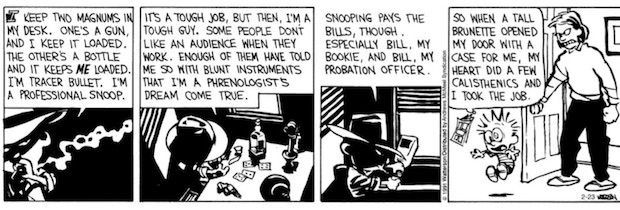


Friedman pencil
— Elon Musk (@elonmusk) November 21, 2024

Rome
— Elon Musk (@elonmusk) November 22, 2024
YMCA
As WW3 Looms Public Captivated By Viral YMCA Trump Dance.
WAKE UP! And Share The Live Stream!https://t.co/e60j44YPjH pic.twitter.com/2eCiaRhzkU
— Alex Jones (@RealAlexJones) November 21, 2024

Linda
https://twitter.com/i/status/1859583936201994524

Elephants
A family of elephants see a lion and form a circle to protect their children
— Science girl (@gunsnrosesgirl3) November 22, 2024

Only girls
https://twitter.com/i/status/1859616060061737365


Support the Automatic Earth in wartime with Paypal, Bitcoin and Patreon.






